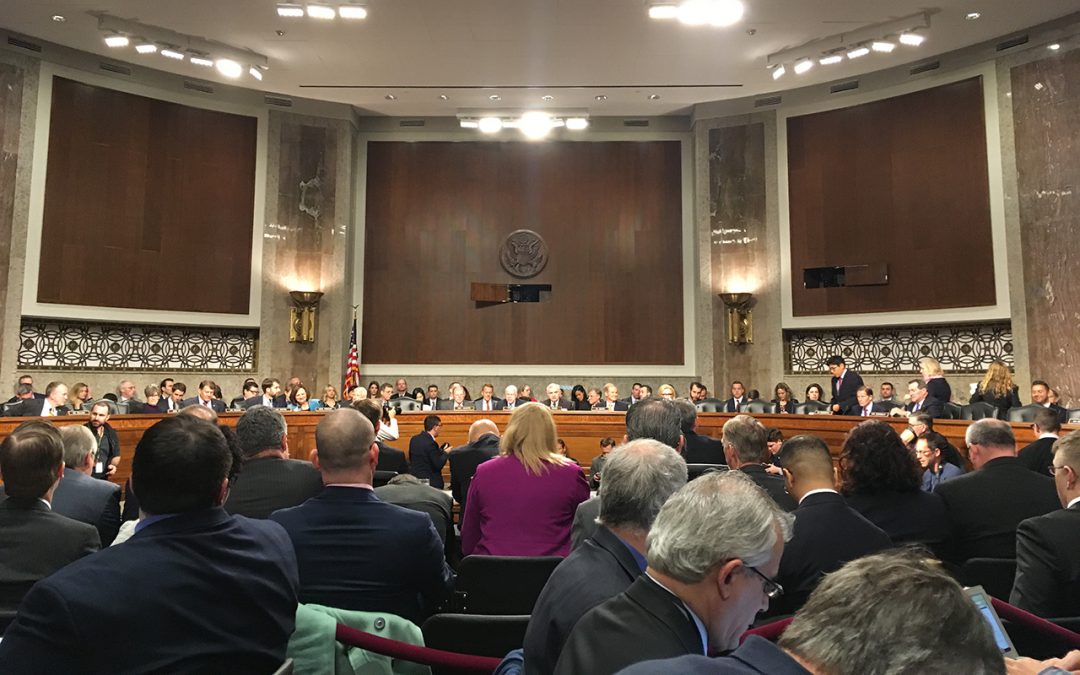WASHINGTON – Evidence clearly shows that senior Russian officials authorized hacks aimed at disrupting the U.S. election, three heads of three U.S. intelligence agencies told the Senate Armed Services Committee Wednesday, contradicting President-elect Donald Trump’s assertion that it’s unclear who carried out the hacks.
“Every American should be alarmed by Russia’s attacks on our nation,” Sen. John McCain, the Republican chairman of the committee, said. “There’s no escaping the fact that this committee meets today in the aftermath of an unprecedented attack on our democracy.”
Trump tweeted Tuesday that the “‘Intelligence’ briefing on so-called ‘Russian hacking’ was delayed until Friday, perhaps more time needed to build a case. Very strange!”
But Thursday morning, he tweeted that he is a “big fan” of intelligence agencies. He will be briefed by intelligence agencies Friday on their investigation of the hacks of the Democratic National Committee and Republican National Committee servers.
The three intelligence chiefs, Director of National Intelligence James Clapper, U.S. Cyber Command Commander and National Security Agency Director Adm. Michael Rogers and Under Secretary of Defense for Intelligence Marcel Lettre II told the Senate committee that their agencies’ investigations concluded that the Russian government was responsible for carrying out the massive cyberattack on the DNC and smaller attack on the RNC.
“We assess that only Russia’s senior-most officials could have authorized the recent election-focused data thefts and disclosures, based on the scope and sensitivity of the targets,” Clapper, Rogers and Lettre said in a joint statement.
During a September presidential campaign debate, Trump doubted Russia’s involvement in the hack.
“It could be Russia, but it could also be China. It could also be lots of other people,” he said. “It also could be somebody sitting on their bed that weighs 400 pounds.”
Sen. Joe Donnelly, D-Ind., asked Clapper what his confidence level was that Russia was behind the hacking and “not someone in their basement,” Clapper replied, “It’s very high.”
Clapper said the information he’s learned since first releasing a report about the cyberattack on Oct. 7 has reinforced this belief.
Sen. Richard Blumenthal, D-Conn., called Trump’s disparaging remarks about the intelligence agencies “a terrible disservice to our nation and to the very brave men and women who put their lives on the line so we may be informed.”
Sen. Claire McCakill, D-Mo., and several other committee members criticized Trump;s tweet Wednesday in which he quoted Wikileaks creator Julian Assange as saying “a 14-year-old could have hacked Podesta.”
“The fact that the president-elect would put Julian Assange on a pedestal above the men and women in the intelligence community? There should be howls,” McCaskill said. “Mark my words, if the roles were reversed, there would be howls [from Republicans].”
“Thank you for that nonpartisan comment,” McCain quipped.
Clapper, Rogers and Lettre refrained from discussing the specifics behind the Russian hacking, assuring the committee that a full report will be given to Congress next week to coincide with the release of an unclassified version for the public.
Rogers said he worried about the impact of the Trump’ remarks on members of the intelligence community.
“I don’t want to lose good, motivated people who want to serve this nation,” Rogers said. “I just don’t want a situation where our ‘workforce starts to walk.’”


